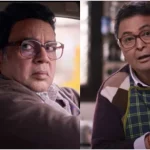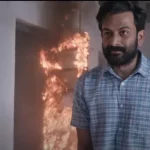Uljhan (The Knot) Review– A Haunting Exploration of Class, Morality, and Guilt
When it comes to films about class divide, we’re often presented with grand, sweeping narratives of revolution or stark, black-and-white portrayals of oppression and privilege. However, Uljhan (The Knot) opts for something subtler and more unsettling—a psychological, moral exploration of the nuances of class disparity, guilt, and human frailty, painted in muted tones and punctuated by silences that echo long after the scene ends.
This is not a film that drags you into its world with loud confrontations or sweeping emotional arcs. Instead, it tightens its grip slowly, pulling you into the claustrophobic lives of its characters, where the lines between right and wrong blur as morality becomes subjective.
A World Where Silences Speak Louder Than Words
The most striking aspect of Uljhan is its deliberate use of silence. Director Ashish Pant has a keen understanding of how silence can amplify tension. There are numerous moments in the film where characters are caught in situations that demand words but are met with nothing but uncomfortable quiet.
Watch the movie here: Uljhan (The Knot)
These moments aren’t just pauses between dialogues; they are narrative devices that reveal the depths of discomfort, guilt, and moral compromise. The silence doesn’t feel empty; it’s loaded with unspoken tension as if the characters are holding their breath in a world that’s too suffocating to speak openly in.
For instance, take the pivotal interactions between the two protagonists—a married couple from an upper-middle-class background—and the lower-class people they come in contact with. The class friction isn’t spelled out in a heated argument or overt acts of discrimination, but in stolen glances, hesitant body language, and words left hanging in the air.
The Characters as Embodiments of Class Tensions
Each character in Uljhan represents a distinct side of the class divide, but not in a one-dimensional manner. They are multi-layered and deeply flawed, embodying the gray areas where morality and guilt clash with societal roles and expectations.

The husband, for example, carries the weight of his guilt not just for what he has done but for what he represents—privilege and the constant desire to hold on to it, even at the expense of others. His discomfort isn’t just situational; it’s existential. He is acutely aware of the inequalities that define his relationships but struggles with how to navigate them without losing his sense of superiority.
The wife, on the other hand, brings a different perspective to the table. She represents a more empathetic but equally conflicted side of privilege. She senses the growing tension between them and the lower-class workers who frequent their lives, but her empathy is laced with guilt—a guilt that stems from recognizing the privileges they enjoy but feeling helpless, or perhaps unwilling, to change the status quo. Her inner turmoil is one of the film’s most fascinating aspects, as it reflects a moral dilemma that many upper-class individuals face in real life.
In contrast, the workers who weave in and out of the couple’s life seem to live in a parallel world, one where their concerns are far more tangible and immediate—survival, safety, and basic dignity. They, too, are portrayed with depth, never reduced to mere caricatures of victimhood. They harbor their own resentments and desires, and the film subtly explores how their encounters with the couple ripple into their own lives.
The Cinematography in Uljhan: Crafting Claustrophobia
The cinematography of Uljhan is deliberately intimate, almost to the point of being invasive. The camera lingers closely on faces, capturing every flicker of discomfort, every hesitant pause. The film often frames its characters in tight, enclosed spaces, creating a sense of claustrophobia that mirrors their internal conflicts. As viewers, we feel as though we’re trapped in the same stifling atmosphere as the characters, unable to escape the mounting tension.
The lighting, too, plays a crucial role in shaping the film’s mood. The muted palette and dimly lit interiors create a gloomy atmosphere, reflecting the weight of the moral dilemmas that the characters are grappling with. Even the most mundane settings—a family home, a narrow alley, a car ride—are imbued with a sense of unease. The world of Uljhan feels closed in as if there’s no escape from the ethical entanglements the characters find themselves in.
Not for Everyone: The Challenges of a Slow Burn
It’s important to acknowledge that Uljhan isn’t a film for everyone. This is a slow-burn narrative that doesn’t offer easy answers or quick resolutions. For viewers who prefer fast-paced storytelling or clear-cut morality, Uljhan may test their patience. Its slow pacing demands attentiveness and reflection, asking the audience to sit with the discomfort and gradually peel back the layers of the characters’ psyches.
Also Read: Roopanthara Review – A Slow Burning Metamorphosis
But for those willing to invest in its pacing, the film offers a rich emotional payoff. It hits its stride in the final act, where the emotional weight of the story crystallizes into moments of genuine catharsis. The tension that has been quietly building throughout the film finally bursts through, and when it does, it lands with a heavy emotional punch.
Performances That Elevate the Story
Much of the film’s success can be attributed to the performances. Each actor brings a level of authenticity and vulnerability to their role, making their characters feel lived-in and real. There’s a rawness to the performances that adds layers to the moral and class conflicts simmering beneath the surface.
The lead actors, in particular, deliver performances that are both subtle and powerful. They don’t rely on dramatic outbursts or monologues to convey their inner turmoil; instead, it’s the small, almost imperceptible gestures that make their performances so affecting. A glance here, a moment of hesitation there—these are the things that stick with you.
Final Thoughts: A Disturbing, Unforgettable Experience
Uljhan is not your typical film about class disparity. It doesn’t attempt to offer grand solutions to social inequality, nor does it paint its characters in black-and-white terms. Instead, it immerses the audience in the murky, uncomfortable reality of moral compromise and guilt, leaving you with more questions than answers.
The film’s slow pace, intimate cinematography, and complex character dynamics make it a haunting and thought-provoking experience. If you’re the type of viewer who enjoys films that challenge you to sit with discomfort and reflect on the moral gray areas of life, then Uljhan will resonate deeply. It’s a film that lingers in your mind long after you’ve finished watching, unsettling yet oddly cathartic.

I can’t stop talking about films, so I blog!
I started The FourthWall, my film blog, to share my thoughts on films and shows with fellow movie buffs, and over the years it has become my happy place. Come join in for some interesting conversations on cinema… and sometimes books and fashion!








